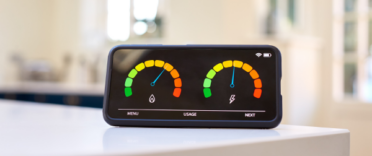Last week the prime minister announced that energy bills for the average household would be frozen at £2,500 by the government from 1st October. This came in response to the energy price cap increasing to £3,549, confirmed by Ofgem at the end of August.
In this article, we explain what the energy price guarantee is, what the confirmed energy unit rates are and what you can do if you are struggling to pay your energy bills.
What is the Energy Price Guarantee?
The Energy Price Guarantee is an intervention from the government that effectively overrides the energy price cap set by Ofgem, capping the average domestic household's energy bill at around £2,500 per year. The Energy Price Guarantee will be effective from 1st October 2022 and will be in place for the next 2 years. More on how the government's Energy Price Guarantee works and who is affected can be found in our article, 'Energy price cap to be frozen at £2,500 for up to two years: What does it mean for you?'
How much will you pay per unit of energy?
It is worth remembering that while the Energy Price Guarantee has capped the amount that you will pay for your gas and electricity over the next two years, the amount you pay will ultimately vary depending on the amount you use. For duel fuel customers that pay for the energy bills by direct debit, unit prices for electricity will be frozen at 34.0p per kWh and unit prices for gas will be frozen at 10.3 per kWh for gas. The aforementioned charges are for consumers living in England, Scotland and Wales. The government is currently working towards a solution for those living in Northern Ireland.
The following table shows how the new frozen rates for direct debit dual fuel customers compare to the current unit charges and the price cap that was set by Ofgem.
| Gas charges | Electricity charges | |
| Ofgem energy price cap
1st April 22 - 30th September 22 |
£0.26 daily standing charge
£0.07 per kWh |
£0.45 daily standing charge
£0.28 per kWh |
| Ofgem energy price cap
1st October 22 - 31st December 22 |
£0.28 daily standing charge
£0.15 per kWh |
£0.46 daily standing charge
£0.52 per kWh |
| Energy Price Guarantee (next 2 years)
From 1st October 22 |
£0.28 daily standing charge
£0.10* per kWh |
£0.46 daily standing charge
£0.34 per kWh |
(*the gas charge has been rounded down to the nearest pence for the table, the charge is 10.3p per kWh for gas)
How much will my average energy bill be?
The following table compares an average energy bill based on property size.
| Property type | Average annual energy bill under Ofgem October price cap | Average annual energy bill under Energy Price Guarantee | Average annual energy bill saving |
| Detached house | £4,700 | £3,300 | £1,400 |
| Semi-detached house | £3,800 | £2,650 | £1,150 |
| Mid-terrace house | £3,300 | £2,350 | £950 |
| End terrace house | £3,500 | £2,450 | £1,050 |
| Bungalow | £3,500 | £2,450 | £1,050 |
| Converted flat | £2,750 | £1,950 | £800 |
| Purpose built flat | £2,400 | £1,750 | £650 |
(Source gov.uk - estimates based on average annual usage in 2019 for dual fuel customers)
What to do if you fixed your energy tariff
If you fixed your energy tariff prior to the energy price guarantee and are unable to leave your fixed tariff due to excessive exit fees, you will see a decrease in the amount you are charged per unit of gas and electricity. From 1st October, your energy supplier will automatically reduce your electricity unit rate by 17p/kWh and your gas unit rate will be reduced by 4.2p/kWh.
If you fixed within the last 14 days you may still be able to leave your fixed tariff without being charged a fee, but check your contract terms.
What help is available for those struggling to pay energy bills?
Every domestic household in the UK will receive £400 towards the cost of energy bills this winter. The amount will be paid automatically and will be spread across 6 months from October to March. This initiative is part of the Cost of Living support package that was announced earlier in the year. There is also additional help and support for those who are most vulnerable. A full breakdown of the help and who is eligible can be found in our 'Cost of Living Guide'.
In addition, you may be entitled to grants and schemes over the winter period that can help contribute toward rising energy costs. We explain the help available and who is eligible in our article, 'Grants and schemes for help with your energy bills'.





